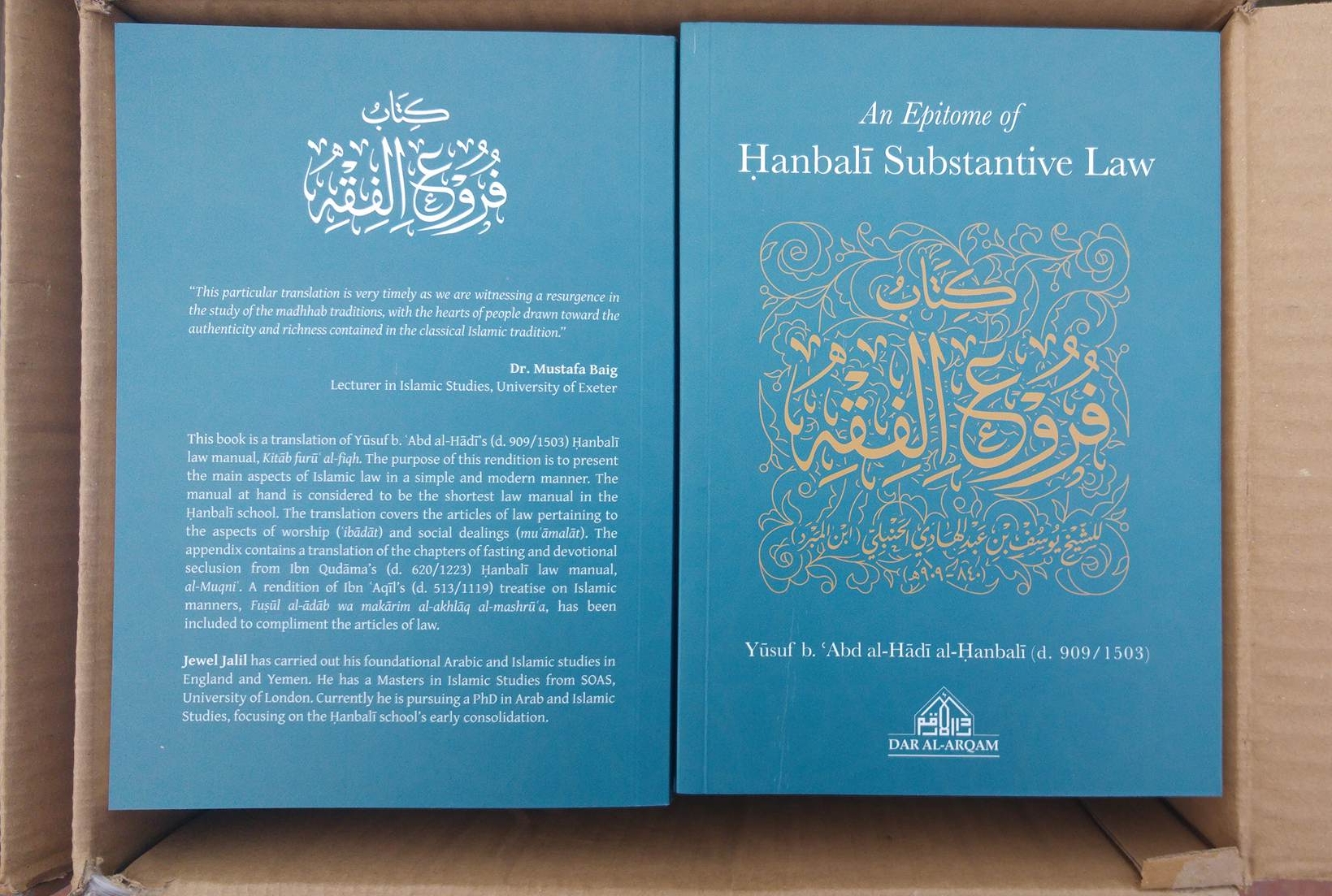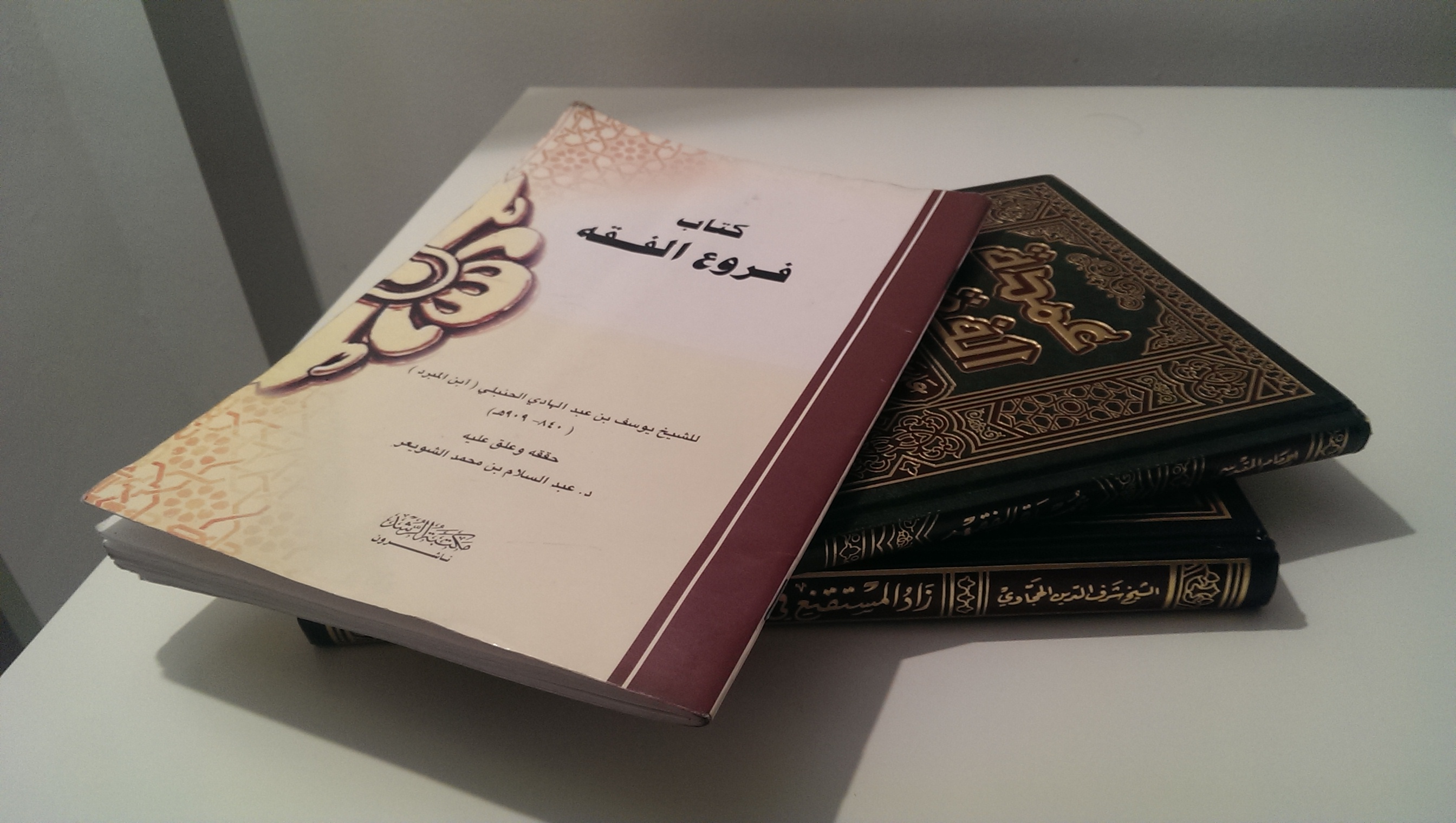
In October 2013, I posted about a Ḥanbalī law manual, Kitāb furūʾ al-fiqh of Ibn al-Mabrad. I informed the readers about a forthcoming rendition of the manual in the near future. Finally, after four years, the translation is finally ready! It can be purchased here. I would like to thank the readers for being patient with me. Although the translation was completed in Yemen, 2011, committments kept me busy from refining the initial rendition.
What does this work include?
It is a translation of Yūsuf b. ʿAbd al-Hādī’s (d. 909/1503) Ḥanbalī law manual, Kitāb furūʿ al-fiqh. The purpose of this rendition is to present the main aspects of Islamic law in a simple and modern manner. The manual at hand is considered to be the shortest law manual in the Ḥanbalī school. The translation covers the articles of law pertaining to the aspects of worship (ʿibādāt) and social dealings (muʿāmalāt). The appendix contains a translation of the chapters of fasting and devotional seclusion from Ibn Qudāma’s (d. 620/1223) Ḥanbalī law manual, al-Muqniʿ. A rendition of Ibn ʿAqīl’s (d. 513/1119) treatise on Islamic manners, Fuṣūl al-ādāb wa makārim al-akhlāq al-mashrūʿa, has been included to compliment the articles of law.

“This particular translation is very timely as we are witnessing a resurgence in the study of the madhhab traditions, with the hearts of people drawn toward the authenticity and richness contained in the classical Islamic tradition.”
Dr. Mustafa Baig
Lecturer in Islamic Studies, University of Exeter




